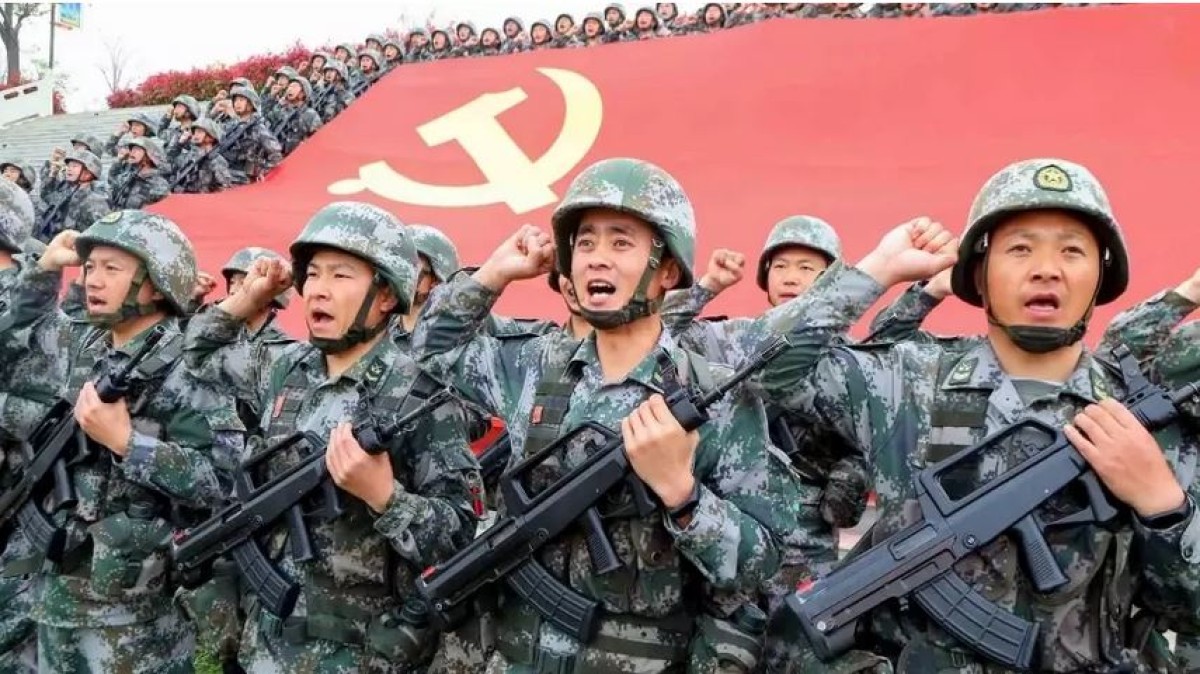 633
633
From Ukraine to Taiwan: How China Responds to Western Provocation in the Taiwan Strait
From Ukraine to Taiwan: How China Responds to Western Provocation in the Taiwan Strait
By: A. Mahdavi
Taiwan occupies a pivotal position in the escalating tensions between China and the West, with Western powers appearing to orchestrate a geopolitical strategy reminiscent of the "Ukraine trap"-- this time aimed at China. The West seems determined to provoke Beijing into a military confrontation over Taiwan, thereby advancing its broader strategic objectives in containing China and managing regional dynamics to its advantage.
Western governments are intensifying efforts to elevate the Taiwan issue into a matter of critical urgency for China. Following Russia’s entanglement in the Ukraine conflict, the West, is attempting to replicate a similar scenario in the East albeit through more nuanced means. By increasing diplomatic and military pressure the objective is to push China towards military action with the ultimate aim of isolating it through sanctions while simultaneously arming Taiwan. The broader goal is to weaken China’s standing in the global superpower competition all while minimizing Western costs.
A central flashpoint in this geopolitical contest is the Taiwan Strait--one of the world’s most strategically vital waterways as half of the world's commercial shipping passing through this narrow strait-- it has now become a critical area of contention between China and the US-led West. China regards the Strait as an integral part of its sovereign territory, an extension of the South China Sea, whereas the West insists it is an international maritime corridor.
The West, however, is not merely asserting the Taiwan Strait’s international status but is actively provoking tensions. Western military vessels regularly navigate these waters-- construed as a deliberate effort to undermine China’s claims and pressurize it into abandoning its “One China” policy. These maneuvers, in other words, are designed to compel China into acquiescence with Western demands--thereby escalating tensions further.
Yet China, having closely observed Moscow’s strategic faux pas in Ukraine, has astutely refrained from reacting as the West might hope. Instead, Beijing has opted for a more calculated approach, strengthening its strategic alliance with Russia and adopting an asymmetrical strategy that mirrors the tactics deployed against it. In the context of this broader hybrid warfare, China has thus far resisted U.S. provocations, maintaining its stance without falling into the carefully laid trap. The duration of China’s ability to sustain this balancing act, however, will depend on numerous factors, including the evolving competition between China and the United States across various global theaters.
In the meantime, Europe, despite its rhetorical claims of pursuing an independent foreign policy, has largely aligned itself with Washington’s agenda. European interests increasingly appear intertwined with those of the United States, particularly when it comes to China. The European Union has followed the U.S. lead in exerting pressure on Beijing further intensifying the geopolitical rivalry.
One of the most striking examples of this alignment is Germany’s recent decision to dispatch a warship, accompanied by a support vessel through the Taiwan Strait. This move, eliciting a sharp rebuke from Beijing, was defended by Germany as being in full compliance with international maritime law. However China interprets such actions as blatant provocations warning that continued Western military presence in the region could seriously damage Sino-European relations. Beijing has specifically cautioned Berlin asserting that repeated provocations could undermine mutual trust thus diminishing cooperation to the detriment of both sides.
Europe’s involvement in this geopolitical chess match seems less about its own strategic interests and more about serving U.S. objectives. Much as Europe incurred significant political and social costs by aligning with Washington during the Ukraine crisis, it now appears willing to shoulder the burdens of competing with China to preserve U.S. support. Europe’s fear of a potential withdrawal of American military and logistical backing drives its acquiescence even at the expense of escalating tensions with China.
In reality, Europe has become a critical instrument in the U.S.'s broader rivalry with China. By pressuring China on multiple fronts, the U.S. has effectively brought Europe into its strategic orbit, ensuring a united front against Beijing.
The central question remains: how far will this strategic competition between the United States and China escalate and which side will ultimately prevail in this high-stakes geopolitical contest?
 633
633
Comment
Post a comment for this article